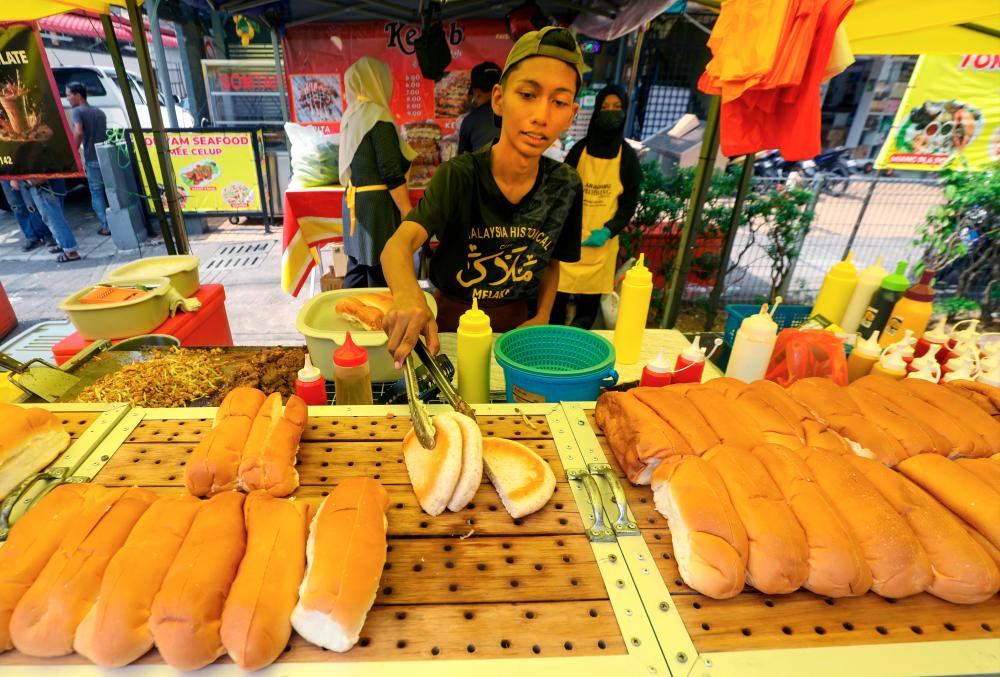PETALING JAYA: Ramadan bazaars, which typically bustle with traditional delicacies, are experiencing a notable shift this year, with vendors increasingly selling international fare due to their higher demand and profits.
Zubaidah Md Roslan, 38, who sells Western desserts at the Subang Jaya Ramadan bazaar in SS19, said she decided on her menu due to strong demand from customers.
“Previously, I used to sell traditional desserts such as seri muka and tepung pelita among others, but this Ramadan the demand for Western desserts has been unprecedented, with items like cromboloni, almond croissant and basque cheesecake attracting more customers.
“On the first day of Ramadan, I earned about RM240 from selling just 25 pieces of cromboloni.
“The figure does not include my earnings from other desserts that I prepared in limited quantities,” she said.
Luqman Alias, 43, who sells Korean fare at the Kampung Baru bazaar, also reported a substantial increase in profits on the first day of Ramadan.
“I used to sell fried chicken at previous bazaars but due to competition from other vendors offering chicken for RM1, I had to change my business model and sell Korean dishes instead.
“My new offerings have become a game-changer. Their popularity among the younger generation has surged demand for dishes like bibimbap, kimchi fried rice, tteokbokki spicy rice cakes and Korean fried chicken.”
Luqman said the trend for foreign food items has significantly boosted his sales and overall income.
However, unlike Zubaidah and Luqman, Kassim Anuar, 51, continues to sell home-cooked rice and dishes each Ramadan.
“I have been in this business for the past few years, but it is becoming more challenging with the growing popularity of international fare.
“Even though my sales have remained constant, I have observed a change in customer preferences as more of them are opting for Korean choices such as ramen, burgers and pasta.
“Nonetheless, I am thankful that 70% of my customers are non-Muslims who continue to support my business,” he said.
While Kassim remains committed to preserving local cuisine, he said he felt disheartened to see fewer customers opting for it.
Despite the growing popularity of international dishes, Kassim said traditional food vendors like him remain steadfast in their commitment to preserving Malaysia’s culinary legacy.
Nur Afifah Majid, 33, who is a mother of two and a regular customer of Ramadan bazaars, said she loves traditional Malaysian cuisine but finds herself gravitating towards the international food items on sale.
“The convenience and familiarity of Western and Korean dishes make them an appealing choice, especially when I can easily prepare local dishes at home,” she said.










